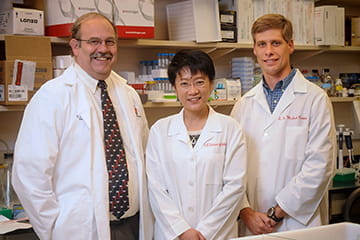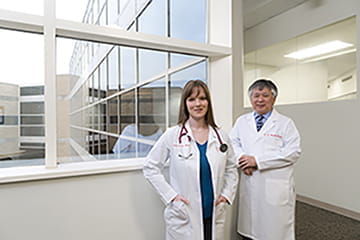IU School of Medicine has been focused on improving health for more than 100 years, and it will continue that mission for the next century and beyond. That is why gifts of endowed funds are so important. They provide support for medical research and education today, tomorrow and far into the future.
An endowment is a permanent fund established to benefit IU School of Medicine. Rather than spending a gift outright, the Indiana University Foundation invests these gifts. Each year, a portion of the investment earnings is allocated to support the program or area designated by the endowment donor, and the remaining income is reinvested. The original gift — the principal — remains untouched, and it continues to earn interest. As a result, the endowment lives on forever.
The endowment may be established in a donor’s name or in honor of a family member, physician, mentor or someone else important. The fund will bear the name designated in perpetuity, creating a lasting legacy.


